
Armin Laschet is a German politician who served as Minister President of North Rhine-Westphalia from 27 June 2017 to 26 October 2021. He served as Leader of the Christian Democratic Union (CDU) from 22 January 2021 to 31 January 2022. He was elected to the German Bundestag following the 2021 German federal election.

Joachim-Friedrich Martin Josef Merz is a German politician serving as Leader of the Christian Democratic Union (CDU) since 31 January 2022 and as leader of the parliamentary group of CDU/CSU (Union) as well as the Leader of the Opposition in the Bundestag since 15 February 2022. In September 2024, Merz became the Union's designated candidate for Chancellor of Germany for the 2025 federal election.

Oliver Wittke is a German politician of the Christian Democratic Union (CDU).
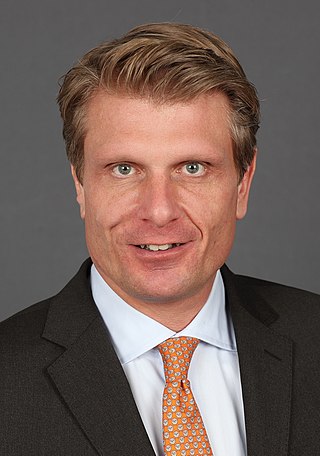
Thomas Bareiß is a German politician of the Christian Democratic Union (CDU) who has been serving as a member of the German Bundestag since 2005. From 2018 to 2021, he held the position of Parliamentary State Secretary at the Federal Ministry of Economic Affairs and Energy in Chancellor Angela Merkel's cabinet.

Norbert Alois Röttgen is a German lawyer and politician of the Christian Democratic Union (CDU). He was Federal Minister for Environment, Nature Conservation and Nuclear Safety in the government of Chancellor Angela Merkel from 2009 to May 2012. From 2014 to 2021, he was Chair of the Bundestag Foreign Affairs Committee.
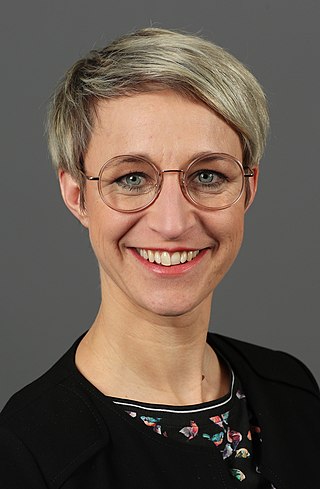
Nadine Schön is a German politician of the Christian Democratic Union (CDU) who has been serving as a member of the German Parliament since 2009, representing the constituency of St. Wendel.

Jens Georg Spahn is a German politician who served as Federal Minister of Health in the fourth cabinet of Chancellor Angela Merkel from 2018 to 2021. A member of the centre-right Christian Democratic Union (CDU), he has been the member of the lower house of the federal parliament, the Bundestag, for Steinfurt I – Borken I since 2002.

Marco Wanderwitz is a German lawyer and politician of the Christian Democratic Union (CDU). From 2018 until 2021, he served as Parliamentary State Secretary in the government of Chancellor Angela Merkel.

Federal elections were held in Germany on 26 September 2021 to elect the members of the 20th Bundestag. State elections in Berlin and Mecklenburg-Vorpommern were also held. Incumbent chancellor Angela Merkel, first elected in 2005, chose not to run again, marking the first time that an incumbent Chancellor of the Federal Republic of Germany did not seek re-election.

Kai Whittaker is a German politician of the Christian Democratic Union (CDU) and member of the Bundestag since 2013.

Helge Reinhold Braun is a German physician and politician of the Christian Democratic Union (CDU). Between 2018 and 2021, he served as Head of the Chancellery and Federal Minister for Special Affairs in the fourth coalition government of Chancellor Angela Merkel. He was the Parliamentary Secretary of State for Bureaucracy Reduction and Federal-State Relations at the Chancellery between 2013 and 2018.
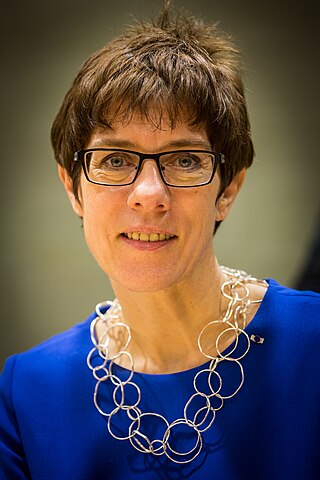
The 2018 Christian Democratic Union leadership election took place during the party's 31st Congress in Hamburg at the Messehallen convention center on 7–8 December following Angela Merkel's decision in October 2018 not to stand for party leader at the 2018 party conference following the party's bad performance in the 2018 Hessian state election and the party's consistently low numbers in national polls.

Philipp Amthor is a German politician of the Christian Democratic Union (CDU) who has been a member of the Bundestag since the 2017 German federal election. From 2018 to 2020, he worked as a lobbyist for the now inactive IT-company Augustus Intelligence.

Kai Wegner is a German politician of the Christian Democratic Union (CDU) who has been serving as Governing Mayor of Berlin since April 2023. He served as a member of the Bundestag, the German federal parliament, from 2005 to 2021. In 2019, he became the chairman of the CDU in Berlin.
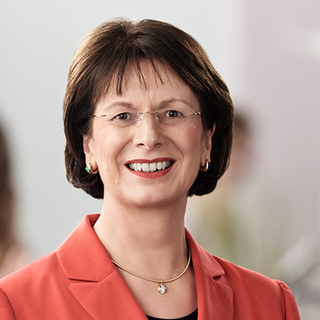
Marie-Luise Dött is a German politician of the Christian Democratic Union (CDU) who served as a member of the Bundestag from 1998 to 2021.

The January 2021 Christian Democratic Union leadership election took place on 15 January 2021 at the party's 33rd Congress to elect the leader of the Christian Democratic Union of Germany.

Heribert Hirte is a German legal scholar and politician of the Christian Democratic Union (CDU) who served as a member of the Bundestag from the state of North Rhine-Westphalia from 2013 until 2021.
Sepp Müller is a German politician of the Christian Democratic Union (CDU) who has been serving as a member of the Bundestag from the state of Saxony-Anhalt since 2017.
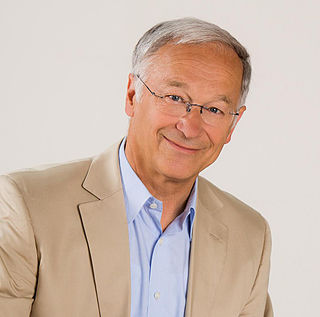
Martin Patzelt is a German politician of the Christian Democratic Union (CDU) who served as a member of the Bundestag from the state of Brandenburg from 2013 until 2021.

Federal elections in Germany will be held on 23 February 2025 to elect the 630 members of the 21st Bundestag. Originally scheduled for 28 September 2025, the elections were brought forward due to the collapse of the governing coalition during the 2024 German government crisis. It is the fourth snap election in the history of post-war Germany after those in 1972, 1983 and 2005.
























